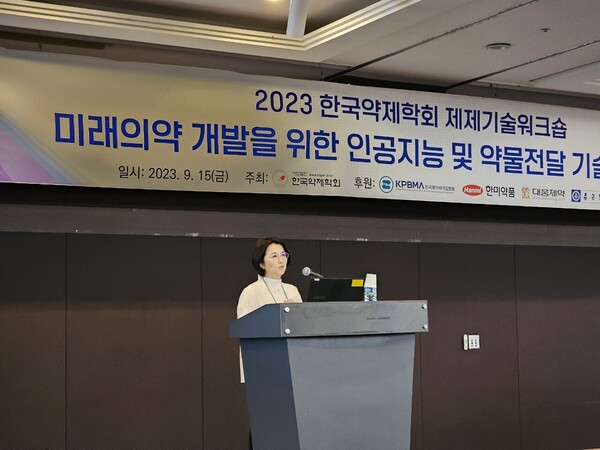
Genome&Company recently initiated a phase 2 clinical trial for biliary tract cancer by combining MSD's immune checkpoint inhibitor Keytruda (pembrolizumab) with its immuno-oncology candidate GEN-001.
Industry insiders are watching with interest what results Genome&Company will achieve as it targets second-line treatment for biliary tract cancer.
Park Kyung-mi, vice president and CDO of Genome&Company, explained the company’s pipeline development in her presentation titled "Microbiome Drug Development Status and Roadmap: The Case of Immuno-Oncancer Therapy," at a workshop organized by the Korean Society of Pharmaceutical Science and Technology last Friday.
According to Park, Genome&Company has begun a phase 2 trial of Keytruda-combined biliary tract cancer, screening participating patients. The company will soon enroll patients. The target number of recruits is 148.
Last November, Genome&Company received phase 2 approval for GEN-001 in Korea's advanced or refractory biliary tract cancer. In May, a clinical modification was approved to add a cohort of patients receiving the chemotherapy mFORFOX (fluorouracil/leucovorin/oxaliplatin) combination.
Besides, Park explained that last month, the last patient was enrolled in a phase 2 gastric cancer study combining GEN-001 with Merck's Bavencio (avelumab).
"We are looking forward to presenting our gastric cancer clinical data at the American Society of Clinical Oncology's Gastrointestinal Cancer Symposium (GI ASCO) in January next year," Park said.
Park, who spoke about the company's development status, the microbiome industry, and technology in general, pointed out that a precise mechanism of action (MOA) is necessary for microbiome drug development to become more active.
According to Park, the Ministry of Food and Drug Safety recently required microbiome drug developers to submit safety data, including toxicity tests, even if they use lactic acid bacteria.
"There is no problem getting an IND (investigational new drug application) approved in Korea without knowing the mechanism," Park said. “However, to license out microbiome drug candidates, it is necessary to explain the mechanism. This is why we are working hard to study the mechanism and metabolites of GEN-001."
The clinical results show that a microbiome drug works better than a conventional drug. In that case, it can be licensed. Still, the MOA must be clearly explained for the microbiome to be recognized as a new modality. Only then will the company be able to keep coming up with second and third substances, Park explained.
"We also need to improve our production technology. We have a very low yield in making enteric capsules,” Park said. “However, we have no problem supporting clinical trials," she added.
Some people say there are difficulties in developing new microbiome drugs because there are no guidelines, Park noted.
“However, we feel that there is no problem because the Ministry of Food and Drug Safety is doing a good job proactively," she said. "The manufacturing method can follow the GMP of pharmaceuticals, except the manufacturing unit cost goes up. If we continue to do this, we expect to be able to make new microbiome drugs."

